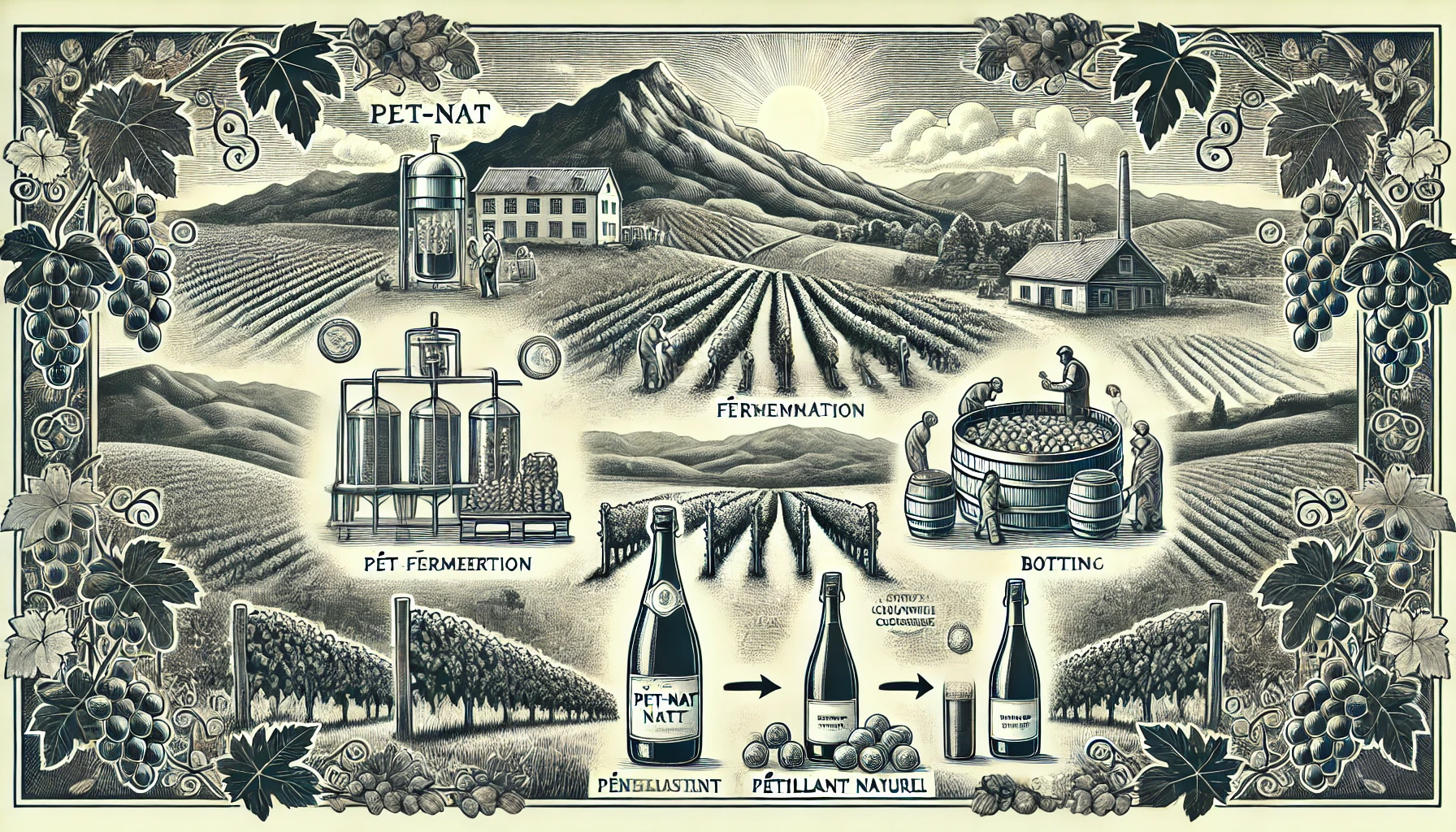
Pét-Nat, short for Pétillant Naturel, is a sparkling wine style that uses an old and natural method called methode ancestrale. This method dates back hundreds of years, before the creation of Champagne. It is unique because it undergoes only one fermentation, which finishes in the bottle. This contrasts with traditional sparkling wines, like Champagne, that go through two fermentations.
Winemakers bottle it while the wine is still fermenting. This traps carbon dioxide in the bottle, giving the wine its bubbly texture. The process creates a lighter, more rustic fizz compared to the fine bubbles in Champagne. Because the fermentation finishes in the bottle, Pét-Nat often has sediment. Some winemakers choose to remove the sediment through disgorgement, but many leave it, giving the wine a cloudy appearance.
Pét-Nat Wines Tend To Be Unpredictable
Every bottle can taste slightly different, even from the same producer. This adds to its charm for many wine lovers. The flavors range widely, depending on the grape variety used and the region where it’s made. Expect fresh, lively flavors like citrus, stone fruits, or flowers. It’s often lower in alcohol and sweetness, but you can find both dry and slightly sweet versions.
Pét-Nat is often unfiltered and may not be as clear as other sparkling wines. It embraces a more natural, hands-off approach to winemaking. This style fits within the larger trend of natural wines, where minimal intervention is key.
Unlike Champagne, Pét-Nat is usually sealed with a crown cap, like a beer bottle. This reflects its simpler, more accessible image. It’s typically meant to be enjoyed young and fresh, making it perfect for casual gatherings or picnics.
Pét-Nat has gained popularity in recent years, especially among fans of natural wines. Its fun, unpredictable nature makes it a standout in the world of sparkling wines.
Neugierig auf weitere Weintermini und spannende Einblicke? Besuchen Sie unseren Wine Wiki Bereich und entdecken Sie grundlegende Weinbegriffe sowie Expertentipps!